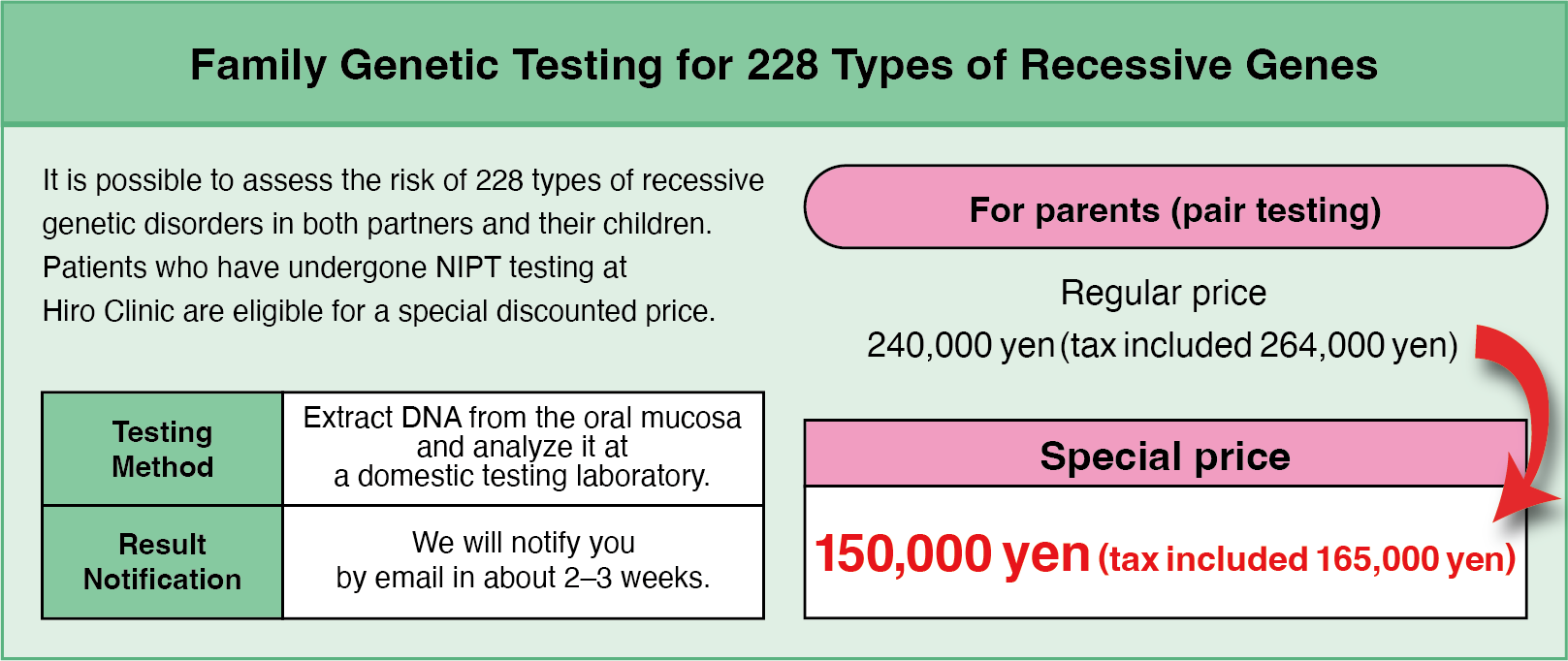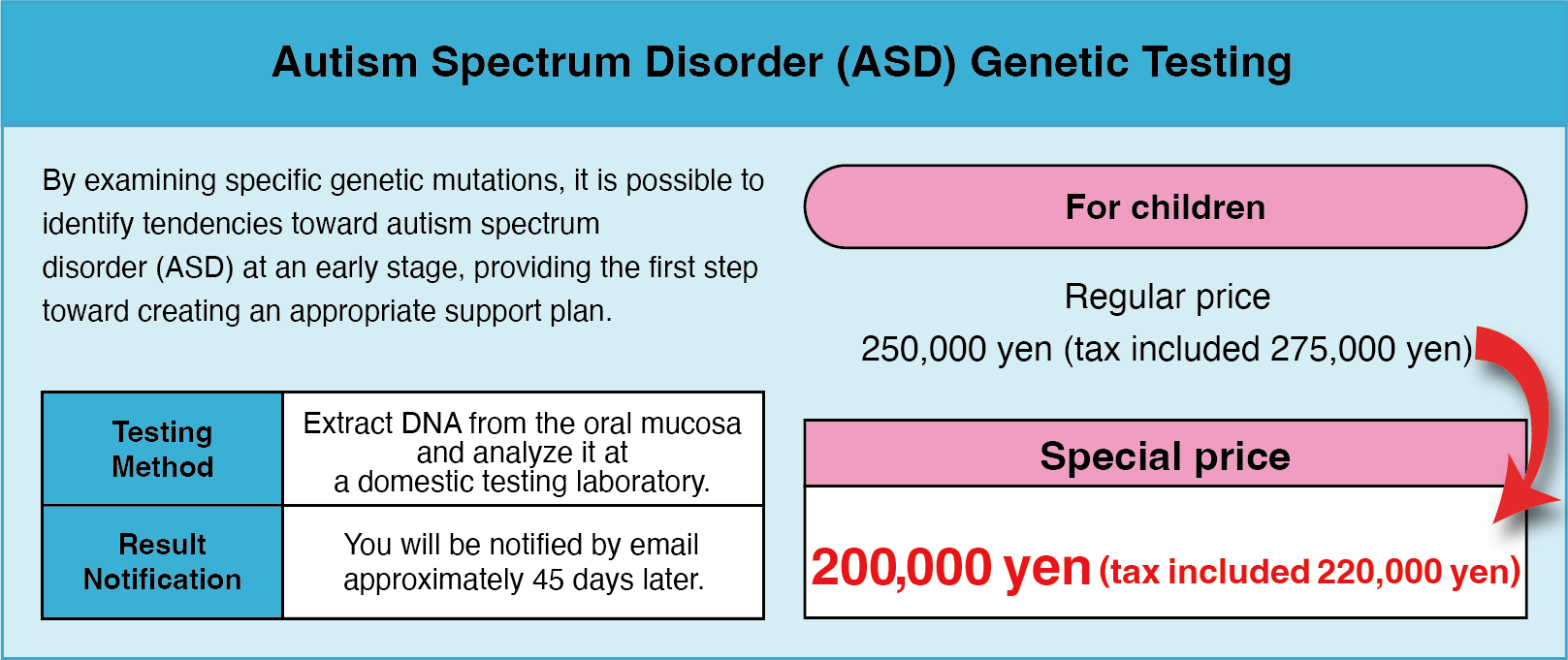無料カウンセリングを始めました
- Respect for the right to know
- We respect the “right to know” of pregnant women and their families so that they can have a safe and healthy birth.
- Towards a proper understanding of NIPT
- NIPT aims to be widely understood not only to provide information on the health of the foetus, but also to maintain the health of the mother.
- IT × Medical
- The use of IT improves convenience for pregnant women, increases the accuracy of tests and provides a quick response.



 中文
中文















 Features of our company
Features of our company Tests available in
Tests available in



























































